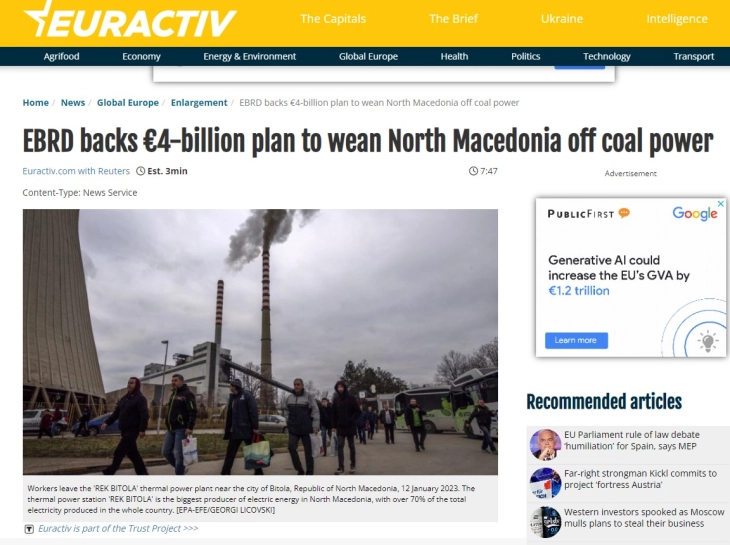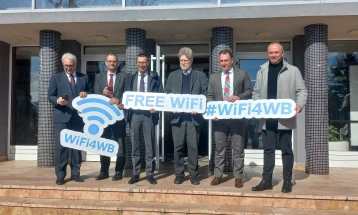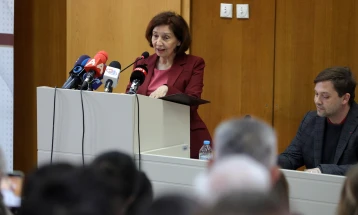EBRD and World Bank back €4 billion plan to close coal power plants in North Macedonia
- International lenders including the European Bank for Reconstruction and Development (EBRD) and the World Bank, are backing a 4 billion euro plan to wean North Macedonia off coal-fired power. The deal, which is expected to be announced at the COP28 climate summit in Dubai beginning on November 30, will lay out a plan to close the country’s two coal power plants and replace them with 1.7 gigawatts of renewable energy, Euractiv reports.

Skopje, 17 November 2023 (MIA) – International lenders, including the European Bank for Reconstruction and Development (EBRD) and the World Bank, are backing a 4 billion euro plan to wean North Macedonia off coal-fired power. The deal, which is expected to be announced at the COP28 climate summit in Dubai beginning on November 30, will lay out a plan to close the country’s two coal power plants and replace them with 1.7 gigawatts of renewable energy, Euractiv reports.
“Coal in North Macedonia represents 40% of the energy source, so it's very big, it's very important. This is one example of what we would like to showcase in COP, to present this approach and what it can deliver, and the commitment of the country,” EBRD President Odile Renaud-Basso told Reuters.
Dubbed the 'Just Energy Transition Investment Program', the plan follows similar efforts to retire coal plants more quickly in South Africa, Indonesia, Vietnam and Senegal, with the support of governments, public lenders and private investors.
A spokesperson for the World Bank's Climate Investment Funds (CIF) confirmed that North Macedonia was in the running for up to $85 million in concessional finance from it, and said the investment plan, including the specific amount of money, would go to the CIF governing body for approval early next year.
The United Nations in 2018 named North Macedonia’s capital, Skopje, the most polluted in Europe, and the country has worked for years to shift away from coal. But in 2021, it reopened the dormant coal-fired REK Oslomej power plant to cut electricity imports. Both of its coal-fired plants are ageing, outdated and run on lignite, the most polluting type of coal.
North Macedonia joined the Powering Past Coal Alliance, a group of countries committed to phasing out coal-fired power, in 2021. After originally targeting completion by 2027, it pushed the date back to 2030.
Photo: MIA archive







